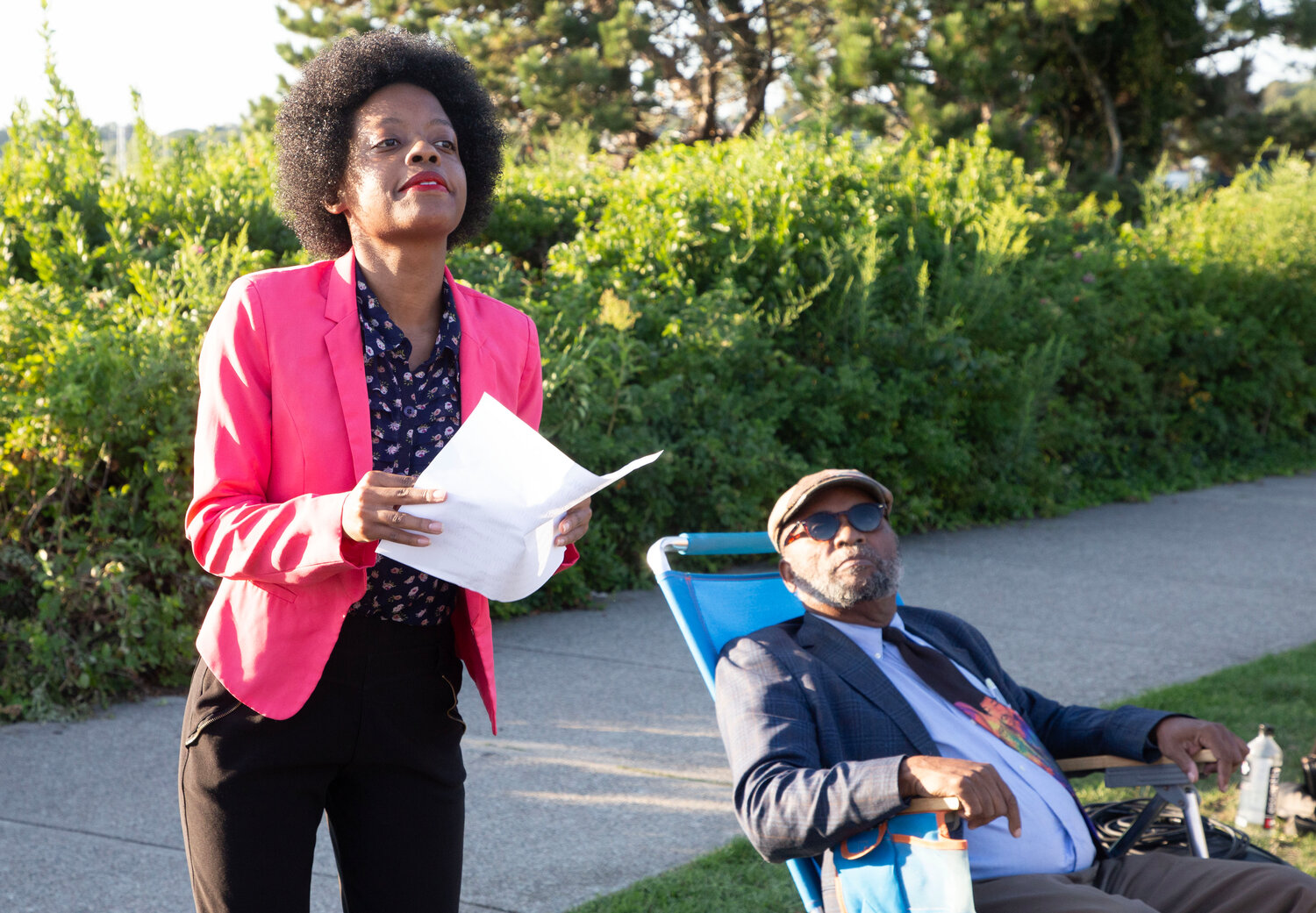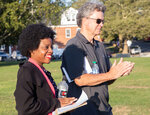On the echoes of slavery: ‘Live like an abolitionist’
The Bristol Middle Passage Port Marker Project recently organized an event on Wednesday, Aug. 23 at Independence Park to coincide with the International Day for the Remembrance of the Abolition of Slavery.
This item is available in full to subscribers.
Please log in to continue |
Register to post eventsIf you'd like to post an event to our calendar, you can create a free account by clicking here. Note that free accounts do not have access to our subscriber-only content. |
Day pass subscribers
Are you a day pass subscriber who needs to log in? Click here to continue.
On the echoes of slavery: ‘Live like an abolitionist’
The Bristol Middle Passage Port Marker Project, which is in the midst of the planning phases to install a permanent monument acknowledging Bristol’s significant role in the Transatlantic Slave Trade, recently organized an event on Wednesday, Aug. 23 at Independence Park to coincide with the International Day for the Remembrance of the Abolition of Slavery.
Speakers included historian Keith Stokes, a Newport resident and Vice President of the 1696 Heritage Group. Stokes, the 2022 Interfaith Speaker during the 237th Fourth of July Celebration, has the distinction of being the descendent of Rev. Mahlon Van Horne, the first person of color to be elected to a Rhode Island school board back in 1872, and the first to be elected to the Rhode Island General Assembly in 1885.
His speech, “The Negro in Rhode Island: His Past, Present, and Future,” is recognized as one of the most crucial first-hand perspectives into race relations at the time. Copies were distributed to attendants with passages read during the ceremony.
Stokes spoke about how those arriving to America during the time of first colonization experienced a much different outlook on life and, eventually, the concept of freedom, than those who arrived in bondage.
“The Negro was to live in a Christian home and upon the rich plantation of the now-favored Pilgrim, yet the Negro is impressed with the fact by teachers and schools, the pulpit and the press, that his destiny was to be the hero of wood and drawer of water. That his individuality was to be aligned to the personality of his master,” Stokes said. “American slavery was the most hopeless and demoralizing of any in recorded history.”
Stokes spoke about how the words of his ancestor still ring important to the modern day, emphasizing that the echoes of slavery and racism can be seen in various outcomes for Black citizens today. Specifically, he cited a fact that Providence has the lowest rate of Black homeownership of any large city in the entire country, which he traced back to the 20th century practices of redlining and housing discrimination that kept Black families out of certain neighborhoods and entire sections of cities.
“What Reverend Van Horn was saying then, and what we’re recognizing today, is the fact that there is an unfinished business,” Stokes said. “The devastating human consequences of African enslavement, indigenous land taking, and then the follow-along evolution of racialized discrimination that exists to this very day still continues to have negative impacts to men, women, and children of African descent.”
Being a modern day abolitionist
Bernard Freamon, the President of the Bristol Middle Passage Port Marker Project Board and a professor of law at Roger Williams University, provided another stirring speech to the attendees regarding what the abolition of slavery actually meant at the time it was enacted.
“In point of fact, and this is the bad news and why this day is important. Slavery, although legally abolished, was not in fact abolished here in the United States. Especially if you think about the badges of slavery and the other things that followed from slavery,” he said. “The inability to own property, to go to school where you want to go to school, to marry who you want to marry, the inability to live in certain neighborhoods. Those things, especially given the history of Jim Crow that we had both in the North and the South, were not abolished.”
Freamon then spoke about the concept of what being a modern abolitionist means.
“Abolitionism is actually more than just about slavery, it has to do with making change. It’s a democratic idea. It happens in a democracy,” he said. “Abolitionism is about how you live, how you behave, what you do in your life to make sure that those badges and incidents of slavery do not find themselves, or are eradicated from public life. So when you see discrimination, you call it out. When you know someone is using language that they should not use, you call them on it. When you see someone who is the subject of inequality and discrimination, you reach out to them and say to them, ‘I’m on your side, can I help you?’”
Both speakers recognized the importance of events like the one organized last week, and emphasized the need for continued recognition of the imbalances in modern society created by something that occurred in the not-so-distant past.
“What you’re doing today is incredibly important. What you do next in establishing this port marker is even more important,” Stokes said. “It becomes a visual reminder of the unfinished business, as Rev. Van Horn said, of providing equal opportunity and access and enjoyment and liberty for all Americans, regardless of race, religion, social class, ethnicity, or sexual orientation.”













